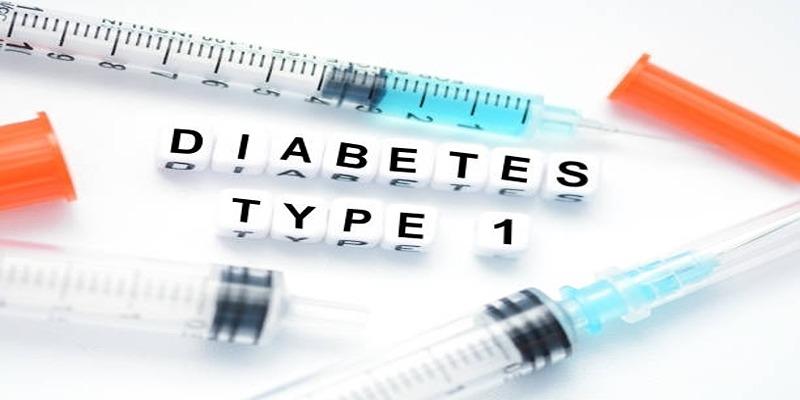Farxiga brand name is a name given to the medication known as Dapagliflozin which is used to enhance the management of blood sugar levels in patients with diabetes type 2. It is a part of a medicine group known as SGLT2 inhibitors that work by assisting the kidneys in ridding the body of excess glucose in the form of urine, lowering blood sugar levels and providing overall benefit in managing diabetes.
Challenge of Managing Type 2 Diabetes

Diabetes type 2 is whereby the body develops resistance to insulin or lacks sufficient output of insulin to control the glucose effectively. The resultant elevated levels of sugar levels in the blood may cause blood vessel damage, nerve damage, kidney damage, and heart damage. More conventional therapy is usually based on medicines enriching insulin sensitivity, insulin release or insulin supplementation.
Though useful, these approaches may not be capable of managing highly complex aspects of the condition, especially in people whose blood sugar levels are not under control despite therapy. This loophole resulted in the necessity of medications with novel mechanisms of action- a field where dapagliflozin along with other comparable medication has been useful.
Introducing Dapagliflozin
The dapagliflozin belongs to the group of medicines enables inhibitors of sodium-glucose co-transporter (SGLT2). Those medications aim at affecting kidney processes of glucose. The amount of sugar in the blood filtered per day by the kidneys under normal conditions is usually very high though virtually everything is reabsorbed into circulation via SGLT2 proteins.
Dapagliflozin operates at limiting the ability of these transporters consequently diminishing the reabsorption of glucose. The uncleaned sugar is excreted through the urine. This special management reduces the level of blood sugar directly without the reliance on insulin, which is particularly useful with people who have insulin resistance.
The Mechanism of Action: How It Works Step by Step?
To better understand the value of dapagliflozin, it helps to look at how it works in the body:
- The kidneys filter glucose out of the bloodstream every day.
- Normally, SGLT2 proteins in the kidneys reabsorb most of this glucose and return it to the blood.
- Dapagliflozin inhibits the action of SGLT2 proteins, meaning less glucose is reabsorbed.
- As a result, more glucose is excreted through urine, lowering overall blood sugar levels.
This process lowers glucose in a way that is independent of insulin.
Broader Health Benefits Beyond Glucose Control
The fact that the effect of dapagliflozin is way beyond blood sugar-reduction influence is one of its distinguishing characteristics. Vast research has established that it also enhances other dimensions of health which are generally being impaired in individuals with diabetes.
Supports Weight Management
Since glucose contains calories, the more it is excreted via urine, the fewer calories will be taken into the body. This small amount of calories burned out over time will lead to a slow weight loss. A minor change of becoming slimmer can make metabolism healthier and more insulin-sensitive.
Helps Lower Blood Pressure
Dapagliflozin elevates the loss of urine through enhancing the excretion of both glucose and sodium. This is a weak form of diuretic action that decreases the blood pressure. This benefit is another cardiovascular-complication shield as most people diagnosed with type 2 diabetes have high blood pressure.
Improves Heart Health
Clinical trials involving medicine companies have shown that dapagliflozin helps to prevent the occurrence of serious heart related events. This protective effect is of great relevance to persons with type 2 diabetes because they are already at greater risk of developing heart problems. It turns the medicine not only into a prophylaxis of glucose levels, but also into a heart protection plan.
Preserves Kidney Function
One of the causes of kidney complications is diabetes. Dapagliflozin helps to preserve the function of the kidneys by decreasing the number of tasks that every kidney handles in addition to reducing overexposure of glucose to the body. A significant benefit is to slow down the onset of kidney-related complications since the complications of the kidney may significantly impair health and quality of life.
Dapagliflozin’s Place in Diabetes Care

Dapagliflozin is prescribed most frequently to persons with type 2 diabetes when food, exercise, and conditioning fail to manage the glycemic index adequately. It may appear alone, and it is commonly combined with other treatments like the use of metformin or insulin to compliment the treatment.
The mechanism it uses does not depend on the insulin, and thus it is especially useful in the treatment as a component of a combination. Dapagliflozin can be used to help patients with insulin resistance in the context of the additional medications and permits the treatment of the disease more generally.
Key Considerations Before Use
While dapagliflozin has numerous benefits, healthcare professionals carefully assess its suitability for each individual. Some factors include:
- Kidney function, since its effectiveness depends on the ability of the kidneys to filter glucose.
- Hydration status, as increased urine output can sometimes lead to fluid loss.
- Other health conditions or medicines being used, which may interact with treatment plans.
Lifestyle and Treatment Integration
Medicine dapagliflozin does not work alone. The diabetes care is still based on lifestyle decisions. Eating well, exercising, being well-hydrated, and avoiding stress still remain at the centre stage.
This level of support is what dapagliflozin gives. It assists people in attaining improved blood glucose regulation besides reducing the chances of long term complications. With proper medicines, combined with healthy daily healthcare safety practices, adopting healthy habits will go a long way in ensuring people living with diabetes can better their overall health outcomes.
The Broader Impact on Modern Diabetes Care
The launching of dapagliflozin serves to point out the changing focus in the goal of diabetes in recent years. An increased emphasis has been formed on the efforts to reduce sugar levels in the blood, improve long-term health, minimize the risk of complications, and improve the quality of life.
Dapagliflozin is an indicator of this new, holistic practice with several heart, kidney, and weight-related benefits. It is not merely a medicine to control glucose- but an aid in making people healthier in a part of health which is part of another part of health and so on.
Future Perspectives
Studies to unravel the entire potential of dapagliflozin and other SGLT2 inhibitors are going on. Researchers are conducting research on their effect not only on diabetes but also heart failure and kidney diseases in non-diabetic patients. This implies that the therapeutic value of dapagliflozin may further develop in the future and may transform the treatment approach of a broad spectrum of chronic illnesses.
Key Takeaways
- Dapagliflozin functions by inhibiting the SGLT2 in the kidneys which reduces blood sugar by excreting more glucose into the urine.
- It offers numerous advantages such as resistance of weight, blood pressure, heart protection and forestalling kidney.
- It is especially useful, since it does not depend on insulin and therefore can be used as part of combination therapy.
- Rigorous surveillance should be done to maintain a safe and effective finding.
- It is a contemporary twist in diabetic treatment, which is not only about glucose but also, about the physiological wellbeing on the long term.
Conclusion
Dapagliflozin is now an important addition in the treatment of type 2 diabetes. Using its ability to attack the natural process of glucose-filtering by the kidneys, it reduces blood sugar levels. However its importance does not only stop at glucose control as it helps not only in preventing heart problems, facilitating weight loss, decreasing blood pressure and also kidney maintenance.












